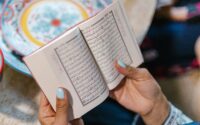
Concept of Adoption in Islam | Nature and Islamic Rules from Quran

Our beloved Prophet Muhammad (SAW) himself was raised by His grandfather and his paternal uncle after He was orphaned as a young child. Later, Prophet (PBUH) also became an adoptive father Himself. The concept of Adoption exists in religion Islam but remember one thing that according to Shariah there is no concept of legal adoption in Islam. If we study it in details then it is prohibited for a person to legally adopt a son or a daughter of whom he is not the biological father. According to the Holy Quran, one cannot become a person’s real son or daughter simply by virtue of a declaration. Allah Almighty says in the Noble Quran: “…And He [i.e., Allah] has not made your claimed [i.e., adopted] sons your [true] sons. That is [merely] your saying by your mouths, but Allah says the truth, and He guides to the [right] way. Call them [i.e., the adopted children] by [the names of] their fathers; it is more just in the sight of Allah. But if you do not know their fathers, they are your brothers in religion…” (Quran, 33: 4-5)

The Islamic form of “adoption” is called kafala comes from the root word meaning “to feed”, its literal meaning is sponsorship. Kafala is also known as legal fostering is the promise to undertake without payment the sustenance, education, and protection of a petty, in the same way as a father would do for his son or daughter.
Nature of Adoption in Islam
The guardian and child relationship has specific rules under Islamic laws, which provides the relationship somehow different than adoption in other cultures. In other cultures, adoptive children become virtually identical to birth children in the eyes of the law. In Islamic culture, it describes more of a foster-parent relationship. Some of the rules in Islam related to this relationship are discussed below:
- An adopted child retains his or her own biological family name and does not change his or her name to match that of the adoptive family.
- An adopted child inherits from his or her biological parents, not from the adoptive parents.
- Members of the adoptive family are not the blood relatives of the adopted child so they are “not Mehram” to him or her.
- So, members of the adoptive family would be permissible as possible marriage partners, and rules of modesty exist between the grown child and adoptive family members as they are “not Mehram” for them.
- Adoptive parents serve merely as trustees for property given to the child by his/her biological family.
Adoption is not helpful to family solidarity and overall harmony and peace, which are necessary for social stability. A completely different form of adoption, which is not prohibited by Islam, is when a man brings home an orphan and wants to raise, educate, and treat him as his own child. A kind of adoption in which he protects, feeds, clothes, teaches, and loves the child as his own without associating the child to himself, nor does he give him or her the rights which the Shariah reserves for his biological children.
It should be made clear as to who the child’s real parents are so that people may call the child by his/her original name, ensuring that the child is well aware of his/her true background or family. Allah Almighty mentions in the Quran “…and Allah has not made your adopted sons your real sons. That is your saying with your mouth. But Allah says the truth. And he guides to the (right) way. Call them (adopted sons) by (the names of) their fathers, that is more just with Allah. But if you know not their father’s (names, call them) your brothers in faith Islam and freed slaves.”(Quran, 33: 4-5)
In nutshell, adopting a child is a huge responsibility. Adopted children deserve more attention than your real children. If a person adhered to all the above-mentioned conditions, then he/she is worthy of great reward and if conditions are not fulfilled, then the adoptee will be deserving of great punishment in Hereafter. As far as the legal aspects of adoption are concerned in Islam, adoption has no negative consequence in the life of a Muslim.




